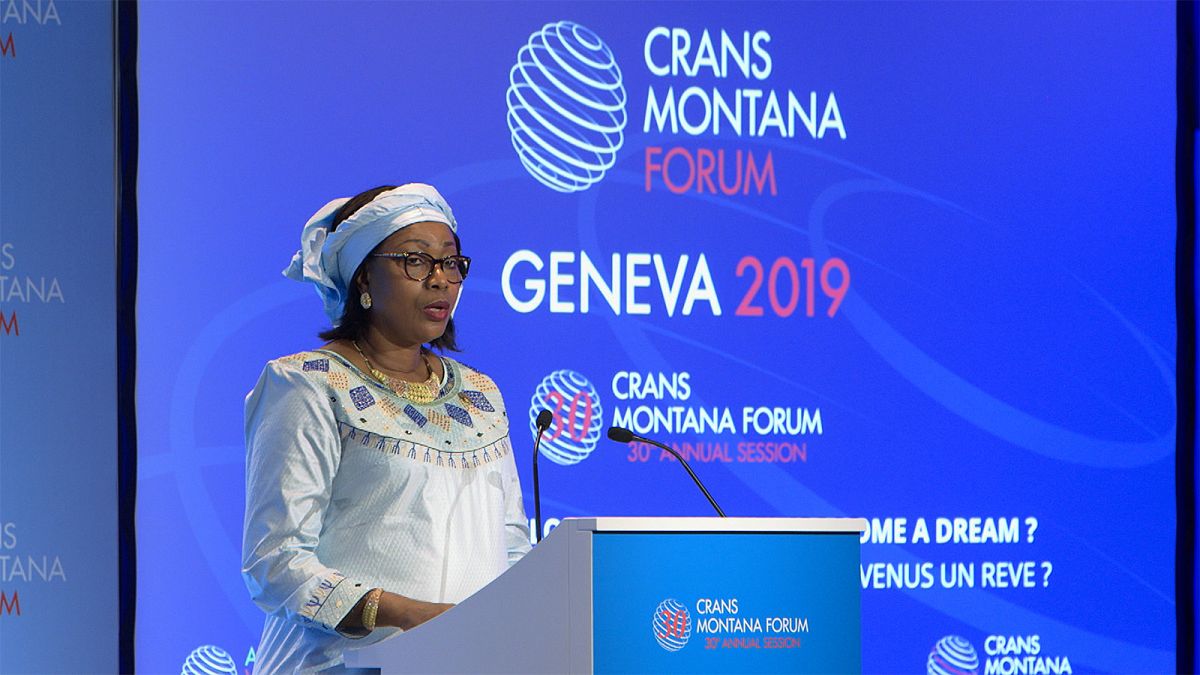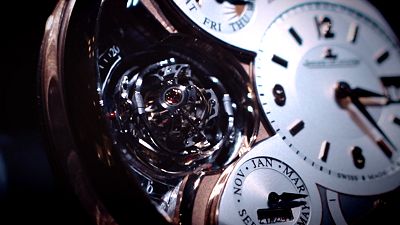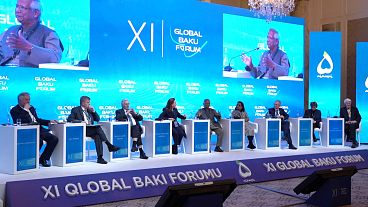Is achieving peace, development and stability a pipe dream? It is the main question being asked at 2019's Crans Montana Forum.
Is achieving peace, development and stability a pipe dream? It is the main question being asked at this year’s Crans Montana Forum (which has been held for the past 30 years).
The setting is Geneva, the birthplace of the League of Nations, which was the predecessor of the United Nations (created just after the First World War). One hundred years later, Switzerland's perpetual neutrality makes it an ideal platform for debating the means required to create more peace in the world.
Every year, heads of government, key players from the business world, and representatives from international organisations gather to exchange ideas and cooperate on the international scene. Organised several times a year in different parts of the world, the event provides a permanent dialogue between public and private sector decision-makers. Euronews sat down with the forum’s honorary chairman and founder, Jean-Paul Carteron.
“The forum has never been politically engaged, we simply choose themes that help towards the normal functioning of the world. Our mission from the beginning was to create a bridge between the newly democratized countries of Eastern Europe, following the fall of communism, and the West [...] Our breadth of activity includes the former Soviet Union, Greater Europe, the Middle East, the Gulf and Africa.”
To celebrate its 30th anniversary, Crans Montana has launched a new initiative: the Med- Eastern cooperation.
From Italy to Russia via Azerbaijan, Adriatic and Black Sea countries have the potential to become key players in regional integration and economic development.
“You can imagine the maritime route as a sort of highway – you can use it to develop cooperation between regions, for example, adopting trade facilitation tools, adding also other balanced development systems for instance investments in a logistic platform in industrial areas related to maritime channels […]They can play a role in the middle between business and also international relations,” said Vittorio Torbianelli from the Port System Authority of the Eastern Adriatic Sea.
Shipping corridors are benefiting from renewed interest as platforms of influence. As in the days of the Renaissance explorer Marco Polo, the Italian ports of the Adriatic, for instance, have the potential to become important connectivity hubs to link the East with the rest of the world and especially Africa. At least according to Inatma Coomber, the director of the Sierra Leone Maritime Administration.
“Linking the Silk Road to West Africa in particular, I’d be happy about that because it will open up trade in the region, it will help improve our finances and also create needed jobs for our youth population”
The Secretary of State of the Romanian Ministry of Foreign Affairs Maria Magdalena Grigore says “connectivity is not only important for one region but it should be overarching in any strategy when it comes to transport or when it comes to international relations,” she adds, “time is always money so reducing time would also make corridors, the network, the route competitive from this point of view.”




